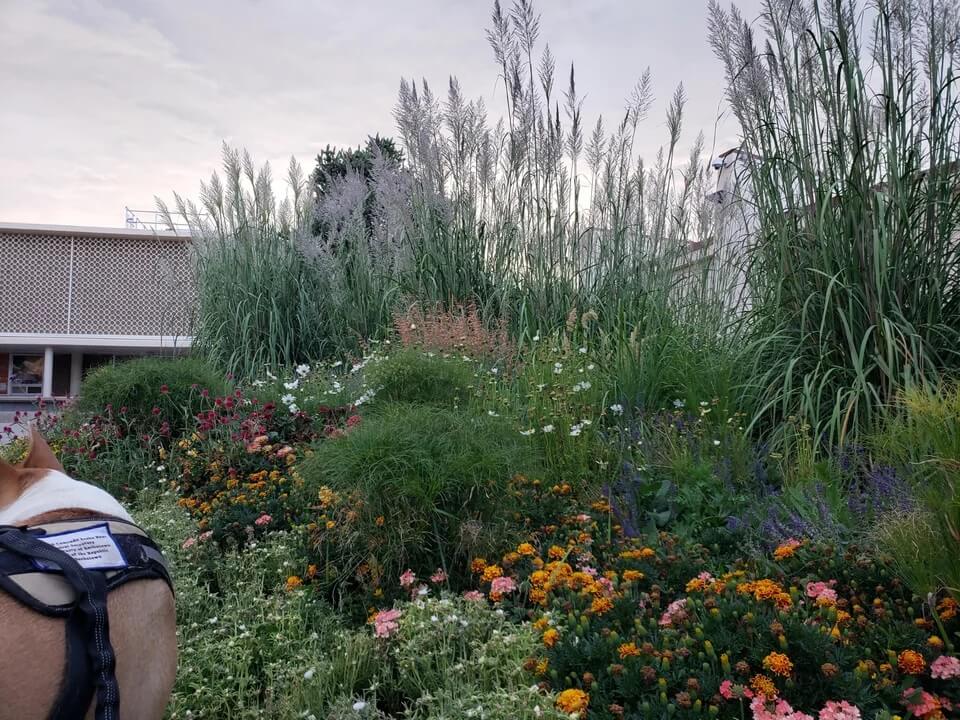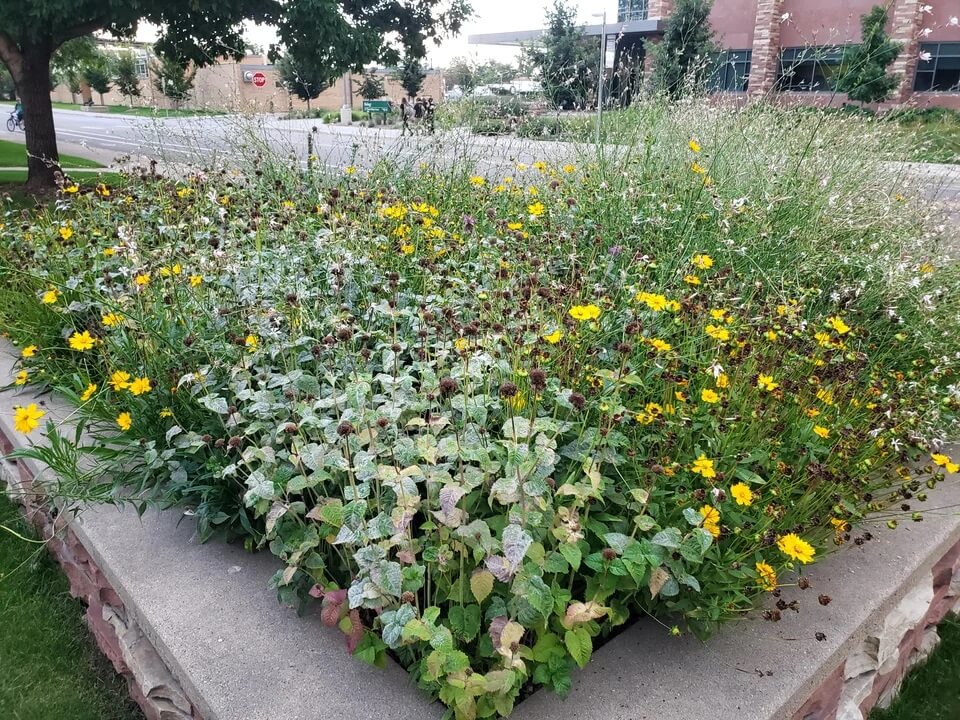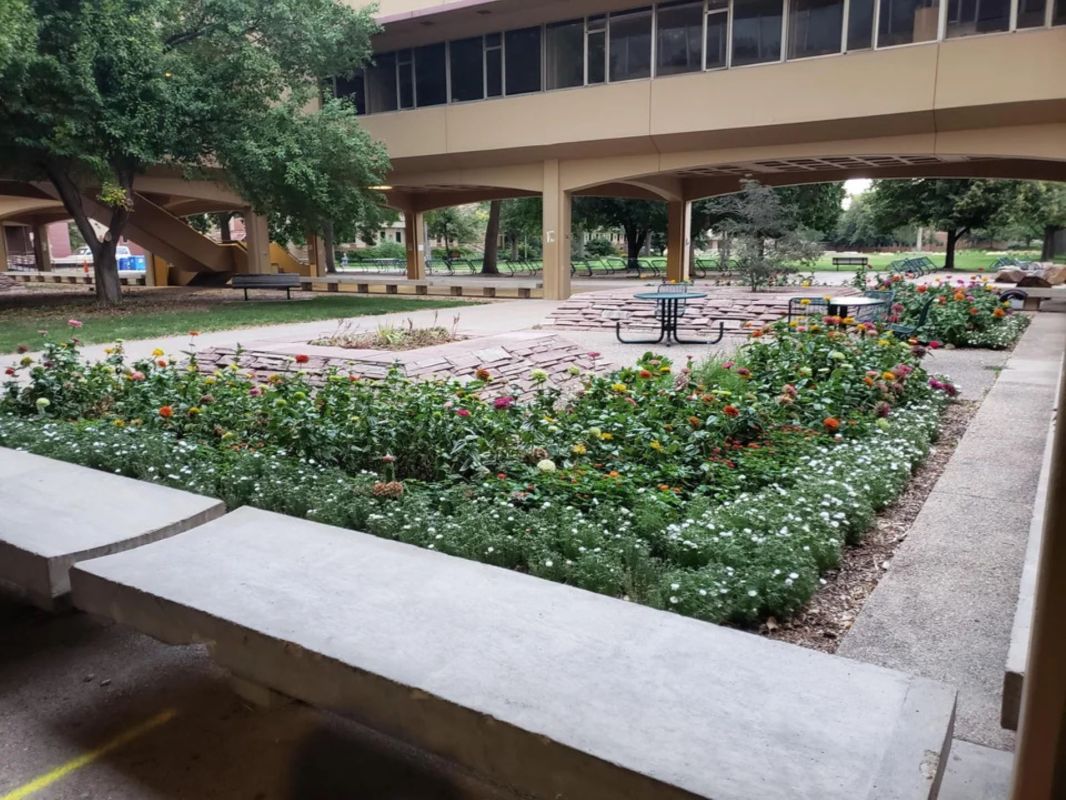Is the goal of landscaping to make something beautiful or to make better transitional habitats between humans and wildlife? Why not both?
One student noticed new landscaping on their university campus that is more friendly to pollinators. They shared their findings on a Reddit post that shows how the university has replaced "bland ornamental [gardens]" with pollinator-friendly plantings. The beds have a wide variety of plants in a rainbow of colors and a range of shapes and sizes.


While these plants are beautiful to look at, they are even more loved by the university's pollinators. By choosing pollinator's favorite plants, the university can support declining pollinator populations while beautifying the campus.
A growing movement across gardening and landscaping aims for more wildlife-friendly plantings. This includes choosing native, drought-resistant, and/or low-maintenance plants and even tailoring the plant choices to local pollinators.
Pollinators keep the plant world running. They carry seeds across distances, carrying pollen to and from different plants. Pollinators like honeybees and hummingbirds are necessary for a plant's sexual reproduction and for plant evolution.
Humans have altered the habitats of pollinators. As we have moved around the world, we have brought different species of plants with us. This has affected local pollinators as their favorite food may be more scarce as it competes with these new species. Certain types of chemical pesticides also threaten pollinator populations.
Climate change, pesticides, and invasive species are all major threats to pollinators. Without them, many plants and animals will be affected, as well as humans. Most of our agricultural crops are aided by pollinators, in addition to many of our ornamental plantings.
In order to support pollinator populations, it is recommended to plant native species that pollinators love. Honeybees love lavender, and hummingbirds love salvia. There is no shortage of pollinator-friendly flowers, shrubs, and grasses, so your garden can be beautiful while helping our pollinators. There are even companies that help you rewild your garden in a pollinator-friendly way!
Many of the comments support the decision to transition to a pollinator garden.
One commenter stated that "these photos should be distributed in universities that [don't] do the same. And schools, hotels, shops, malls, hospitals, everything."
Another said, "This is so much prettier than the boring beds."
Join our free newsletter for cool news and cool tips that make it easy to help yourself while helping the planet.









